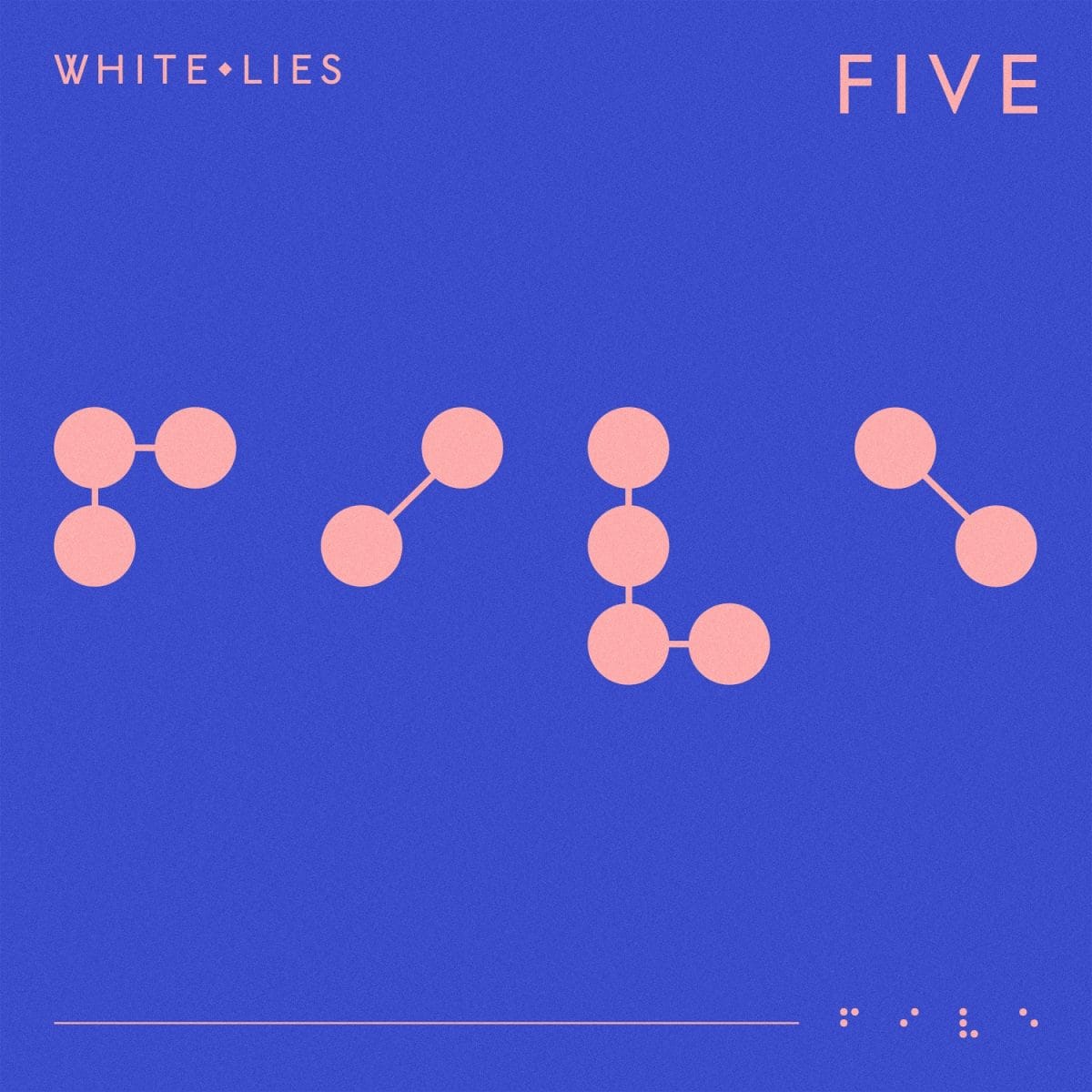It all began in 2007 in the London borough of Ealing. Charles Cave, Jack Lawrence-Brown, and Harry McVeigh created the band Fear of Flying. The hobby turned into a project with serious ambitions after the three had finished school: curtain up for the White Lies.
Two years after the band was founded, the first album was released: To Lose My Life… hit like a bombshell. The lead single of the same name or Unfinished Business or Farewell To The Fairground—the record is peppered with timeless anthems. Almost overnight, the trio—together with the Editors—became the spearhead of the post-punk revival that conquered the world from Great Britain.
«We concentrated on the melodies»
In 2011, the White Lies followed up with Rituals and took their anthemic qualities to the extreme in songs such as Bigger Than Us and Bad Love. Singer and guitarist McVeigh created longing and melancholy. The gloom of post-punk permeates the album.
But Rituals already revealed, at least retrospectively, the band's great dilemma: to this day, they are measured by their greatest hits. Yet Rituals was already an album full of variety: alongside the high-flying tracks, there is also the slowly stomping, electronically dominated Turn The Bells. Or the balladic Come Down. But these strong songs are less memorable than Strangers, for example.
With their third album, Big TV, the White Lies attempted a break: brighter, poppier and more harmonious. Above all, however, post-punk and rock elements moved into the background. Of course, the melodic brilliance still shone through, but no longer in the dirty underground, but in the glamour halls of the eighties.
Bass player Charles Cave said in an interview with Negative White in 2013: «We didn't pay much attention to the sound, but focussed on the songwriting and the melodies. It's mainly the melody of the voice that sets Big TV apart from the other albums.»
Emancipation from Post-Punk
The musical tendencies that White Lies explored on Big TV were then perfected on Friends (2016). With 14 songs, it is their most comprehensive album. They have retained their trademark: Friends is full of infectious melodies.
They delivered a perfect rock show at Kaufleuten in November 2016 and proved to the critics that the new songs work and fit seamlessly between the old hits. And yet it was clear from the disc that the White Lies have definitely grown beyond the palatable melancholy of post-punk.

The White Lies' fifth album—simply called Five—will be released on 1 February. There is space for nine songs. Time To Give, the opener and first single, already demonstrates self-confidence. A spherical introduction lasting over seven minutes. The melody is carried almost single-handedly by McVeigh's vocals.
Time To Give is not an easy start; you have to «earn» Five. Then the fireworks begin. With Never Alone, post-punk is back in a modern version, fast and driving as ever. Finish Line surprises with an acoustic guitar intro and turns into a powerful ballad. The trio continues bluntly: Kick Me is just as creeping as Finish Line but flirts with country and Americana.
After the first four songs, the album has thrown you into four completely different flavours of White Lies. Is this a brilliant move—or does the album fall apart? That's the big question for Five.
As the fifth of nine songs, the single Tokyo is the heart. And what a heart! This is where the band's entire artistry comes together. Expansive, longing, full of groove. The 80s shimmer warmly through the sound, the melody captivating.
With Jo?, the trio puts the pedal to the metal. The guitars lurch sharply around the bend, and the rock attitude is more present than ever in their sound. Their songs have always been powerful, but Jo? feels different. Denial slows down the high tempo, but the chorus is exuberant and pompous, like on To Lose My Life. And again, the edgy guitars show up.
Believe It again creates contrast with its striking synthesiser bow. McVeigh sings in a refreshingly monotone. Once again, the 80s are revealed in all their splendour. With the repetitive «Believe it» in the chorus, the White Lies create a whipping urgency.
Fire And Wings concludes Five as probably the most unwieldy of all the songs. A beacon that collapses into silence and then explodes again like a volcano.
A New Chapter
Back to the question that inevitably arises with Five: Is the album falling apart?
No. The White Lies have always worked with variations. You only have to listen to The Price of Love from To Lose My Life or Peace & Quiet from Rituals to hear that.
But with Big TV and Friends, the band redefined the boundaries of their sound. That's why the facets on Five are clearer. «The album is a milestone for us. It marks the decade of our band, which has driven us to expand our sound. We have reached new artistic territory,» says the band. Five is the start of a new chapter.
In fact, Five is many times stronger than Friends. Even if the sound varies greatly: The new songs are all on a level which the band only sometimes achieved on its predecessors. The arrangements are tightly knit, the melodies more refined and unexpected. There are skilfully interwoven breaks. Thick layers give the tracks a rich sound—and enable new discoveries to be made again and again when listening.
In short, Five is a magnificent album.

White Lies – FIVE
Release: 01/02/2019
- Time To Give
- Never Alone
- Finish Line
- Kick Me
- Tokyo
- Jo?
- Denial
- Believe It
- Fire and Wings





